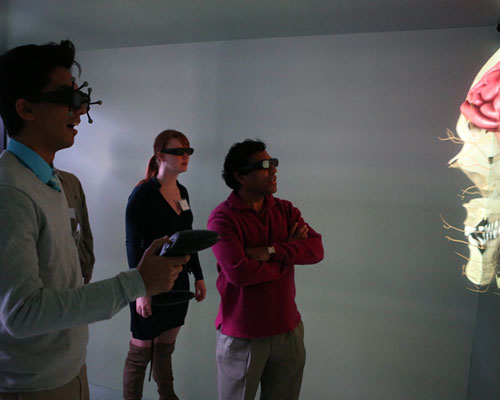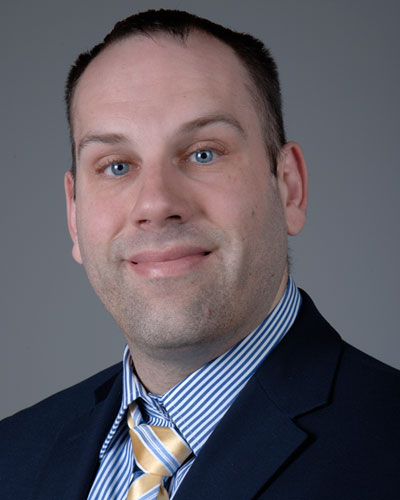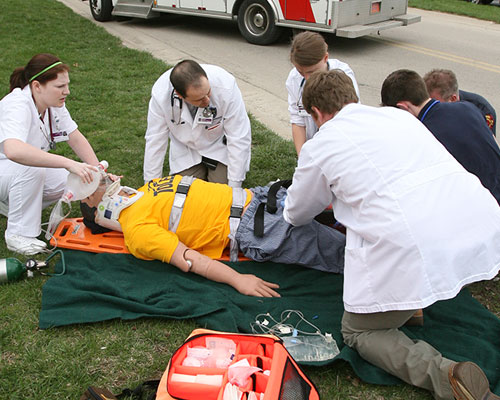UToledo researcher develops biometric sensory measures to analyze clinical simulation responses.
The University of Toledo’s simulation center reflects today’s reality of health care. The three-story, 65,000-square-feet facility serves as a hub for innovation to develop new products, processes and procedures.
Interprofessional Education
A highlight of the Interprofessional Immersive Simulation Center is integrated learning opportunities for students from many of the University’s academic programs, including medicine, physician assistant, nursing, pharmacy and other health professions. The interaction increases respect and communication between professions, improving learning outcomes and patient safety.
Advanced Clinical Simulation
The tri-center concept includes surgical simulation training suites, fresh tissue labs, virtual operating suites, and a virtual hospital with intensive care, trauma, and labor and delivery.

Comprehension Measurement
UToledo researcher Scott Pappada, M.D., has developed biometric sensory measurements to analyze physiological responses during clinical simulation sessions, helping students and instructors better evaluate learning progress based on the body’s response to stress.

Advanced Training
Toledo area paramedics, emergency medical technicians, firefighters, police officers and others rely on the University’s simulation center to train to respond to situations from heroin overdoses to active shooters.

Learn More
- UToledo to develop training tool to better care for patients who are homeless
- UToledo staff and students trained to respond to active shooter in hospital
- Students use human simulators to practice caring for brain-dead, organ-donor patients
- UToledo hosts heroin overdose simulation to help fight drug epidemic